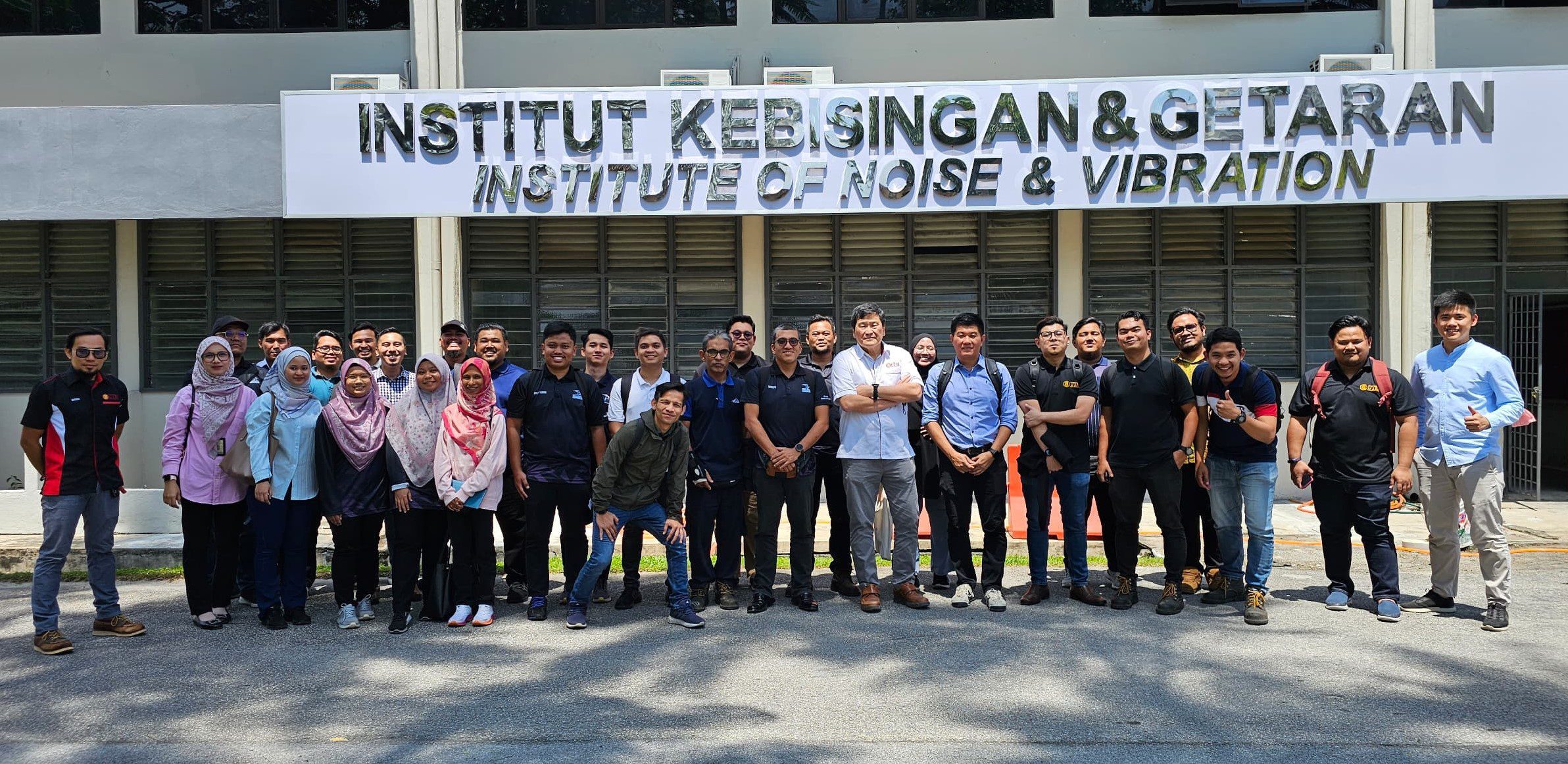
Bridges, critical components of national infrastructure, are increasingly susceptible to structural failures due to factors like natural disasters and excessive loads. To combat this, effective structural health monitoring is essential for maintaining bridges in a serviceable state.
In response to this need, the Institute of Noise & Vibration (IKG) at UTM Kuala Lumpur hosted a comprehensive training session on March 14th for 22 engineers from Projek Lintasan Kota Holding Sdn. Bhd. (PROLINTAS). The session centered on a specialized method known as Vibration-based Damage Detection (VBDD), used in Structural Health Monitoring (SHM). Experts leading the training included Prof. Dr Salman Leong and Associate Prof. Dr Norhisham Bakhary from IKG, as well as Dr Khairul Hazman Padil and Dr Muhammad Naquiddin Mohd Warid from the Faculty of Civil Engineering (FKA) at UTM.
The training program consisted of both theoretical and practical components. It started with classroom sessions focusing on the principles and frameworks of SHM, followed by hands-on activities, including lab exercises and fieldwork. These experiences were instrumental in helping engineers learn how to apply SHM techniques in real-world settings, particularly in designing and implementing VBDD for assessing structural conditions.
The day began with an introductory speech by Prof. Dr. Salman Leong. It was followed by theoretical lessons interspersed with case studies and a live demonstration of VBDD. The afternoon session transitioned to the IKG laboratory for a vibration test observation.
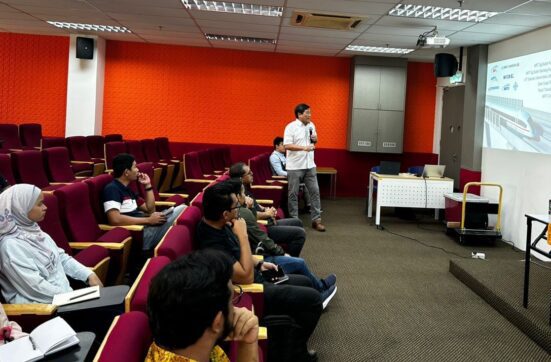
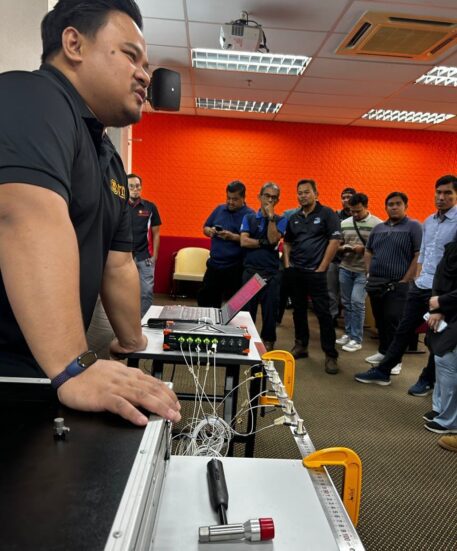
The practical session commenced at 10:00 p.m. on one of the elevated structures along the SUKE highway. Engineers were introduced to the VBDD processes on-site. This included arranging sensors, exciting the bridge, and processing data for actual structures, offering a hands-on experience.
For the PROLINTAS engineers, participating in this training was both a professional commitment and an opportunity. They gained vital knowledge in both the theoretical and practical aspects of VBDD.
This session was a prime example of IKG’s initiative to strengthen university-industry ties and foster translational research. It demonstrated a productive collaboration between academia and industry, focusing on real-world challenges and technological advancements. Notably, this collaboration led to IKG securing a four-year contract with PROLINTAS for periodic monitoring of elevated highway structures along the SUKE highway in Kuala Lumpur, underscoring the importance and success of this partnership.
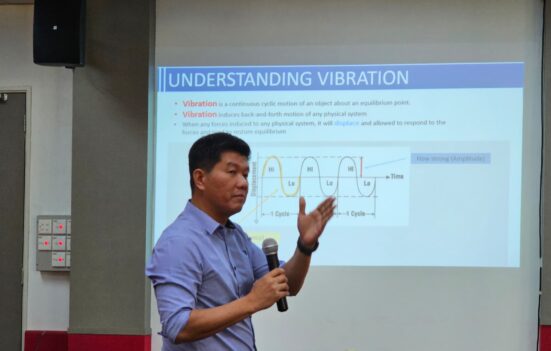
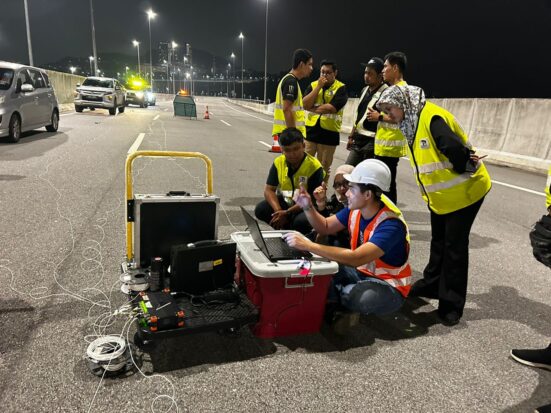
Source: UTM NewsHub
